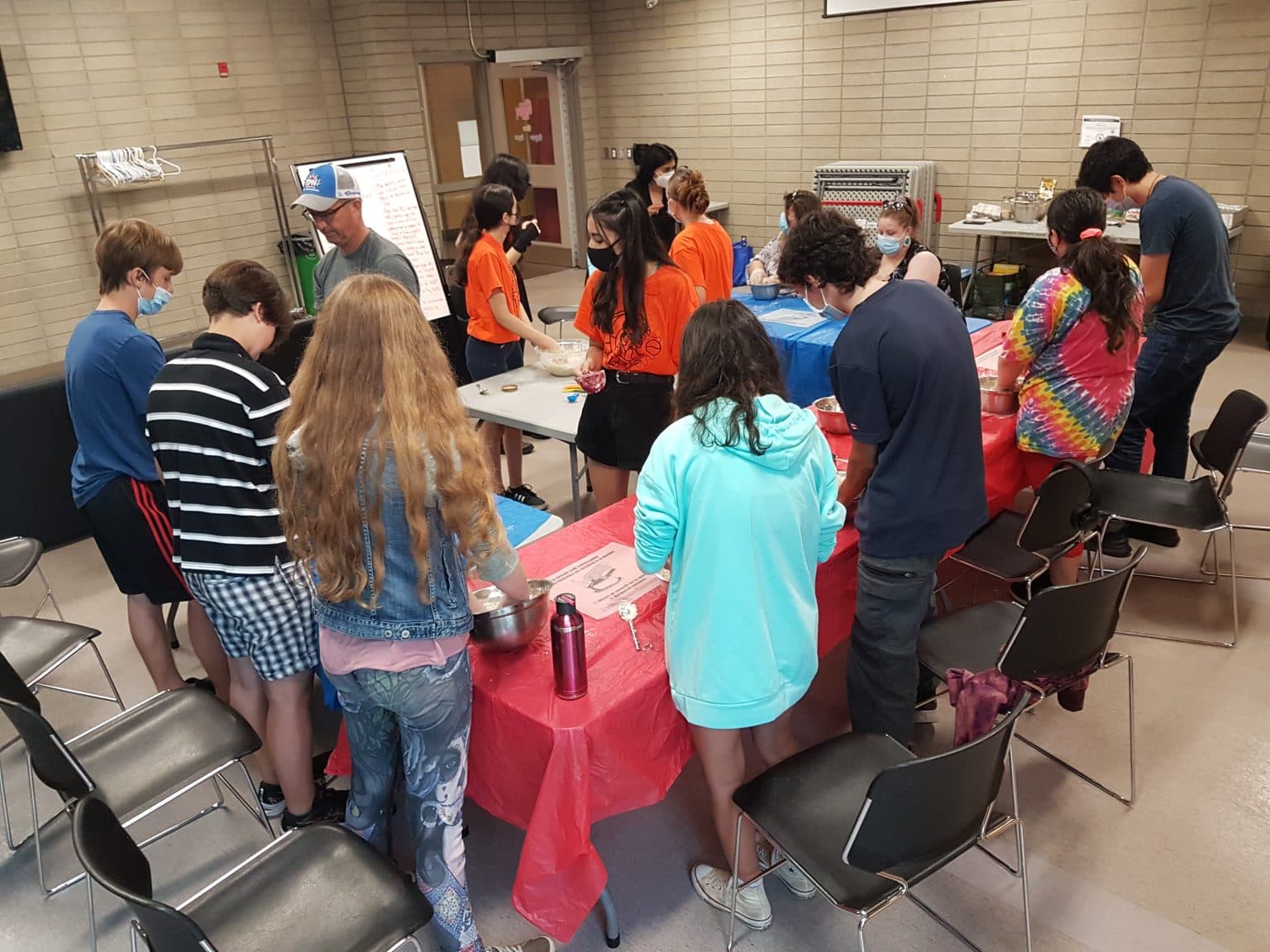TL;DR
Youth4Youth Canada creates and manages projects to improve the lives of youth in Canada through arts, culture and health education.
Details
To highlight the work CREation Grantees are doing in their communities, the Creation Community Grants Team sends out Q&A forms so they can share their experiences creating and carrying out their projects. Today we are featuring responses from Taliah Lyons, Sarina Lyons, Zara Lyons, and Ayla Martin of Youth4Youth Canada (Y4Y).
Q : Tell us about your group and project!
A : Youth4Youth Canada creates and manages projects to improve the lives of youth in Canada through arts, culture and health education. Y4Y Canada is founded and led by 4 female Indigenous youth and is entirely staffed by volunteers. So far, we have 2 projects: Talk Overdose (opioids education) and Kisac (Indigenous workshops). Kisac focuses on arts and culture whereas Talk Overdose focuses on health education. The success of the Kisac Cultural Workshops led the Metis Nation of Ontario to request Metis jigging workshops for Ottawa Indigenous youth. Community interest and support is what drives us to offer workshops that bring youth together!
Q : As the youth running the project, what impact do you hope it will have?
A : Kisac means “with a view to the future” in Swampy Cree. With Indigenous communities disproportionately impacted by the opioid crisis, Y4Y Canada researched ways to help. We came to recognize the role of culture in healing intergenerational trauma and designed the Kisac Cultural Workshop Series project to promote connection to culture. In 2022, Kisac mobilized Elders, Knowledge Keepers, Facilitators, parents, and youth to come together and delivered 5 culturally relevant workshops to 50+ urban Indigenous youth aged 8-20 between July – September 2022. In 2023, there are 15 cultural and dance workshops planned for a total of ~300+ youth <25 years old. Indigenous youth from different parts of the area come together to learn how to do the things that our ancestors knew but that we never had the chance to learn. By teaching and by doing, everyone learns valuable skills that can be passed on to other Indigenous youth and to future generations.Elder teachings are an important part of each workshop and youth attending workshops have reported feeling a stronger connection to culture, to community, and to Indigenous identity.

Q : What is something you have learned?
A : We’ve learned to not give up, in spite of challenges. Our project was a finalist in UBC’s Let’s Talk Overdose 2021 competition. Instead of giving up when we did not win, we secured our own funding from community partners like CRE because WE saw value in our ideas. One year later, our tiny startup grassroots organization is expanding to offer cultural services that were identified as needs by youth in our community. Another unexpected surprise was the popularity of our handmade chocolates beyond just an icebreaker at Talk Overdose presentations and workshops. This gave us the idea to use them as a fundraiser to cover project costs not covered by microgrants. It’s been a learning curve for all of us, but we’re learning a lot about things like marketing, cost recovery, and managing finances.
We frequently hear, “When’s the next workshop?” followed by “Do you still have space?”. It is rewarding to know that people see value in what we do, are learning valuable skills, and are looking forward to reconnecting at future workshops.
Q: Is there anything else about your project you’d like to share?
A: As Indigenous youth who were disconnected from culture as a result of the Sixties Scoop, we had difficulty finding opportunities to learn and connect with youth of all ages. When a number of youth also expressed similar frustration (especially those from families with younger siblings), we decided to remove barriers and welcomed all youth <25 years of age. This way, everyone in a family can benefit culturally from the experience. Culturally specific work is the basis of what we do. As Indigenous people who also facilitate workshops for our youth, feeling connected to others like us helps everyone not only deepen their understanding of the material but also have a stronger sense of identity. Developing a good sense of self, especially in light of Canada’s history with Indigenous people, is extremely important to the well-being of our youth. When people are well, they feel empowered to help themselves.
We are so proud of the heart-work our young relatives like Taliah Lyons, Sarina Lyons, Zara Lyons, and Ayla Martin from the Y4Y team are doing across Turtle Island and are so lucky to be able to support them in their work.